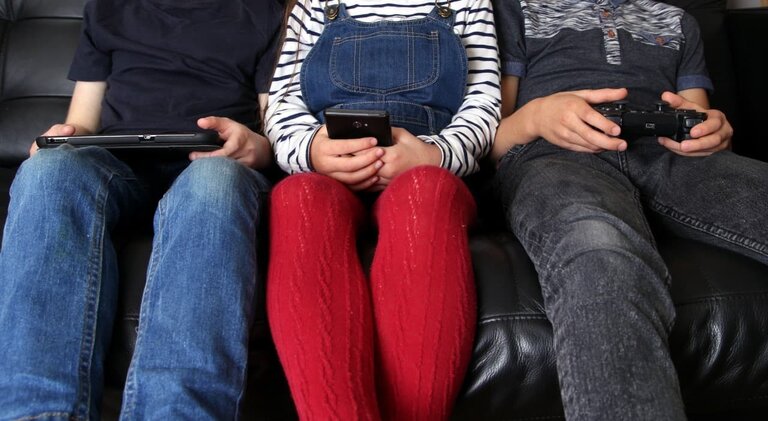Children's rights are not confined solely to the physical environment. They apply every bit as much in the digital world and form the basis of the core work of the project childrens-rights.digital at Stiftung Digitale Chancen. A major part of our mission is to explain how the rights of children are to be respected in everyday digital life.
The COVID-19 pandemic poses new challenges for people of all ages. However, if there is one tiny upside, it seems likely that when we come out at the other end of the current crisis a large number of people will be more acutely aware of something children have known for a long time. The distinction between analogue and digital, between face-to-face and virtual, is vanishingly small. Obviously certain kinds of social transactions can only be completed if people are in close proximity to each other, but we are all also now learning in a very direct and immediate way just how many social transactions can take place over the internet. Necessity is the mother of invention.
My own screen time has almost doubled in the last week compared to before - because I no longer sit at a table with colleagues but communicate via an online application on my laptop or smartphone. All of our everyday lives have suddenly become much more digital. More than we could have imagined even just a few weeks ago.
What does this mean for children's rights, for the freedoms they are granted and for the protection they need in accordance with the respective articles of the UN Convention on the Rights of the Child?
Children have a right to education (Art. 28), but in families where adults and children normally share the hardware, it can be hard to reconcile home-based employment-related work and schoolwork. Social disadvantage will be further exacerbated where families lack the necessary technical equipment and enough bandwidth to access the internet at acceptable speeds. When the Art. 31 right to play and leisure and to participate in art and culture can only be exercised at home because playgrounds and youth recreation spaces are closed, further conflicts and tensions arise and everybody’s patience can be put to the test.
It has been known for some time that risks to children also increase when they spend larger amounts of time online. These could be in the form of undesirable contacts made through online games, exposure to unsuitable content or dubious purchase offers. These bring to mind the protective rights under Art. 17 (protection of minors in the media), Art. 19 (protection against commercial exploitation) and Art. 34 (protection against sexual abuse) are affected. Currently, the main burden of ensuring that children can use digital media safely rests on the shoulders of their parents. They need support in this regard and responsible action on the part of the platform operators is required, as provided for in the amendment to the German Youth Protection Act.
Despite all their need for protection, children also have a right to privacy even in these unusual times (Art. 16). A lot depends on the age and capabilities of each individual child but, in principle, children have a right to stay in contact with their friends without their parents or siblings "knowing everything", and they are entitled to know that the contents of their communications are not visible to unauthorised persons.
Home is not always the happiest place for every child. For this reason they need to be aware of the contact points outside their family, from which they can confidentially obtain advice and help. Together with advice centres all over Germany, the childrens-rights.digital project is working to ensure that this is possible in accordance with the requirements of the EU data protection regulations. In the current situation, the Federal Ministry for Family Affairs is increasing its support for counselling services so that they can meet the increasing demand from children and young people, see the Ministry's press release with links to a selection of offers.
In politics and administration, in the family and in the wider social environment, the best interest of the child should always have priority in all decisions. This is the basic principle of the UN Convention on the Rights of the Child. It remains every bit as valid and important even in difficult times like these. The significance of digitisation, which has previously been perceived in a rather abstract way, is now becoming clear to an enormously larger circle of people in everyday life.
When we come out of this moment it is likely our understanding of the digital environment will be greatly enlarged and enhanced. In particular, we will have a better understanding of the way in which digital spaces can shape and facilitate contacts between people both in a positive and productive way, but also in less desirable ways. This improved understanding should act as an important spur for progressive change which bodes well both for society as a whole and above all for the realization of children's rights in the digital environment.
